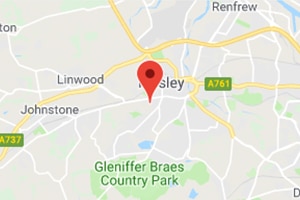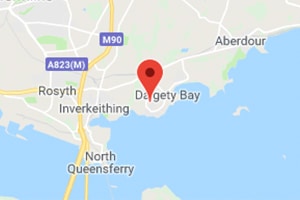Having the correct boiler pressure is essential when it comes to circulating hot water around a home – without the build-up of water pressure inside your boiler, you won’t be able to use hot water, meaning cold showers and a cold home, both of which can contribute to serious health issues, especially if you or any of your cohabitants are vulnerable.
Fortunately, once you understand how to identify any potential issues, keeping aware of your boiler pressure is a relatively easy task and can help you determine when to call in the professionals if necessary.
So what exact pressure should a boiler be running at? Let’s explore more.
What is boiler pressure?
Most central heating systems are sealed systems, which means that, unlike their open vented counterparts, there are no vents to control the water expanding and contracting as it heats and cools. Instead, the system is pressurised, so in order to move water around the house efficiently, it must maintain stable pressure.
Boiler pressure refers to the amount of pressure being used within the boiler to heat the water up inside it, which is then circulated around the home.
How to check boiler pressure
Most gas and combi boilers will have a pressure gauge on the front which displays the current pressure inside the boiler.
These gauges vary in appearance. Some will have a single needle, showing low and high pressure which may be highlighted by red areas on the dial, with a green section in the middle that represents where the needle should be pointing – other gauges may have two needles, with a red one representing the level that the pressure should be at and a black one showing what level the pressure actually is.
Alternatively, some modern boilers may display the pressure on an LCD screen and may flash or show an error message if the pressure becomes too high or too low.
What should my boiler pressure be when the heating is on?
When the heating is on your boiler pressure should be showing between 1.5 and 2 bar on your pressure gauge. Most boilers will highlight this area on the pressure gauge in green to help you see if the boiler pressure is in the ‘safe zone’.
The pressure in your boiler increases when the heating is on because water expands and takes up more space when it is hot, which in turn, creates extra pressure in the system. It is worth being aware that problems may arise if this pressure increases too much or too fast or on the other hand, not enough.
If the pressure needle rises into the red section or above 2 bar this could mean there is a fault with the pressure relief valve or expansion vessel. Enlisting the help of a professional service engineer would then be necessary.
What should my boiler pressure be when the heating is off?
If your central heating system is turned off the boiler pressure should be between 1 and 1.5 bar. This means that the needle should still stay in the green area of the pressure gauge, just as it does when the heating is on, but of course, the needle will be showing a smaller amount of pressure.
Why does my boiler keep losing pressure?
Despite the pressure gauge on your boiler allowing you to quickly identify if you are losing pressure, it can, in many cases, be difficult to find the root cause of the pressure problem given that heating and hot water systems are complex in nature.
You’ll know if your boiler is experiencing low pressure as the pressure gauge will be showing at below 1 bar – in some instances, your boiler may automatically turn off as a result of low pressure.
The two most common issues that can cause loss of pressure are water escaping somewhere within the system or a failure of the expansion valve, which can then damage the pressure relief valve.
When it comes to low boiler pressure, it is essential to investigate and identify the cause as soon as possible in order to protect the boiler itself and mitigate the risk of damage to your home.
Why does my boiler pressure keep rising?
Your boiler may also automatically turn itself off if the pressure becomes too high, with the main reasons for this often being that:
- There may be too much water in the heating system
If you’ve added water to your system to help offset low pressure this could well be the reason for the increase in boiler pressure. A simple way to fix this is by bleeding your radiator, which lets out some of the water and can therefore help with reducing the pressure.
- The boiler is faulty
If bleeding your radiators doesn’t prove successful, it could be that one of the boiler parts could be faulty. It is recommended that you contact a Gas Safe Registered engineer to look further into the issue.
Conclusion
In summary, your boiler pressure should be between 1.5 and 2 bar when your heating is on, and between 1 and 1.5 bar when your heating is off. Problems with low pressure and high pressure should be addressed so as not to cause further damage to the heating system. If in doubt, always contact a registered professional to aid with troubleshooting issues.
Looking to get into being a domestic gas engineer? View our range of courses and change your career today.
Find out more about how you can train as a domestic gas engineer or get in touch with us to see how you could shape your career – we take being job-ready seriously.

